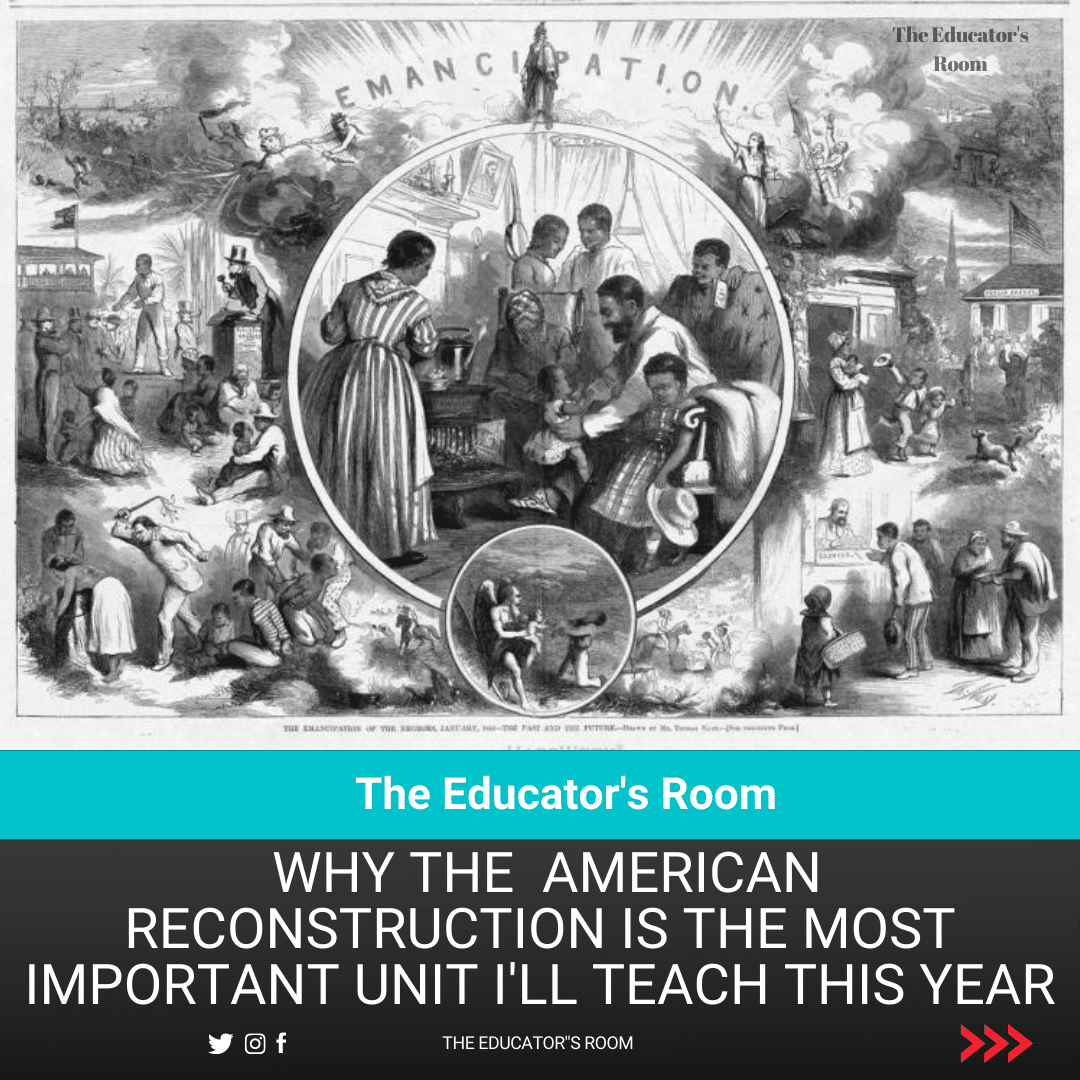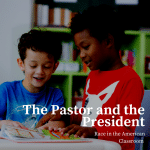When I first started teaching the second-half of American history, my colleagues and I fell in love with the curriculum. The Civil War, the World Wars, the industrialization and rise of America, and the jazz age all piqued our interests. But one unit that always left us wanting more was Reconstruction. Often glossed over as a set of policies that occur that helped mend the wounds of a broken nation and tried – albeit unsuccessfully – to rope 4 million newly freed Black Americans into the fold, it always left us with the desire to move quickly to the next unit.
But that was then.
Now, my colleagues and I have transformed this unit into an investigation about an America that feels very much like today, and here are 10 reasons why it’s the most important unit that we’ll teach this year.
- History doesn’t repeat itself, but it rhymes
This quote, often attributed to the fantastic mind of Mark Twain, is one that I lead with in my classroom every day. God willing there will never be another Nazi Germany, but there is still a Ku Klux Klan presence in the United States today. Acknowledging that history is cyclical helps us to understand the cause and effect, and we are in a very contested America just as those who lived in 1865 did as well. - It examines a nation divided
For all the craziness that 2020 feels like, I couldn’t imagine living in 1865 or that short time thereafter. The President was assassinated, a first in American history and arguably at the most consequential time it could’ve occurred. Lincoln wanted “malice towards none and charity for all” as the nation set to rebuild the South and welcome 4 million newly-freed Black Americans into the fold, but also led to martial law of the former Confederate states as their hatred for the Union still smoldered like slow embers. As people who called themselves friends build distance from one another over political differences, the lesson strikes an almost uncanny equal rhyme. - Reconstruction is about race
The biggest divide in post-Civil War America is over race. The Civil War was fought over the question of slavery and not states’ rights. Lincoln said it. Most of the Declarations of Secession directly said it and the others implied it. The fact that Confederate apologists still have a hold to argue otherwise highlights that we still have work to do is outdone only by the notion that the Constitution hasn’t changed more since the 1860s. It also amply provided so many Black Americans so many rights that were chiseled away in such an unapologetic nature with equal rapidity. - History teaches us for every few steps forward, there are steps back
History is, for lack of a better word, messy. It is not all glory of the American people and yet it is also not suffering. It is both at the same time. Reconstruction is evident of that, for as quickly as slaves are freed by the 13th Amendment, they are land-tied peasants relying upon sharecropping. My students examine these steps forward and backward in an investigative project I call “The Long Road to Freedom.” You can use this project for free by clicking on this link for the Google Slide Deck. - The impeachment of Andrew Johnson
No sitting President has ever been as unpopular as Andrew Johnson had been in 1868, and Congress moved to not just override the first Presidential veto in history, but also to hold its first impeachment trial over a law that was created simply to “catch” Johnson in his misdeeds. As 2 of the last 4 Presidents had their own impeachment trials exhibiting eerily similar rhyming patterns, we have much to learn from Johnson’s impeachment process and how, even though it failed, placed him in eternal historical mediocrity. - Revisiting the historiography of Ulysses S. Grant
Thanks to the 700+ pages of Ron Chernow’s book Alexander Hamilton, the nation’s first Secretary of the Treasury didn’t just get a new coat of paint by historians, it inspired Lin Manuel Miranda to write the most insanely popular musical in a generation and a new lease on life. Similar seedlings are being sprouted in Chernow’s most recent book Grant, where the 1,000+ pages have been a force in moving Grant from the list of “worst” presidents to a pretty capable one. It’s a subtle reminder that while the facts don’t change, our interpretation of their impact does. - The Election of 1876 will be essential to understanding the Election of 2020
There were so many problems rife with the Election of 1876, where 3 states’ entire ballot box integrity were in question. Samuel Tilden, the Democrat, won the popular vote but Rutherford B. Hayes, the Republican, won the vote of the 15-person committee controlled by the Republican House of Represenatives. As History.com notes, this was a true test of the Constitution, and our upcoming election evokes a similar sentiment. - We’re still debating the role of the Confederacy today
And so are my students. You cannot find a Confederate Flag on eBay or Amazon because they don’t permit their sale. Is that proper, or is it a muffling of Freedom of Expression? Similarly, more Confederate statues have come down in the last 6 months than in the rest of history combined. Is that the right call, or is it whitewashing history? I shared this ProCon.org resource on Confederate Statues with my students for a Socratic seminar and they had great conversations that I wish more adults could have. - Students are simply interested in the tales of Reconstruction
Years later, I have students who aren’t just interested in learning the stories of post-Civil War America, they’re applying them to today. That’s intensely powerful and the true intention of history – learn where you came from before you plot the road ahead. - It’s crucial to understanding the 99 years between Lincoln and Martin Luther King, Jr.
When I was in 8th grade, the narrative of this century of repression was a political history of laws and abridgements of freedoms that didn’t resonate with me. What I remember is Lincoln was an icon and Dr. King was an icon, but an empty part in the middle and certainly a glowing story after King that misspoke of resolution. But in a nation where folks march under the banner of Black Lives Matter and others find those words cumbersome and distasteful, we obviously are still bearing the brunt of unfinished business of Reconstruction. Don’t be afraid to teach it.






